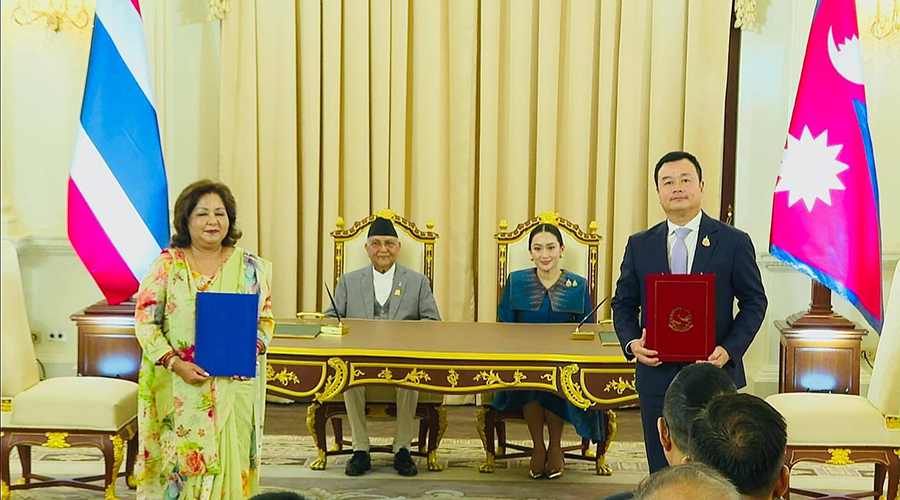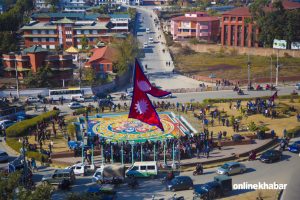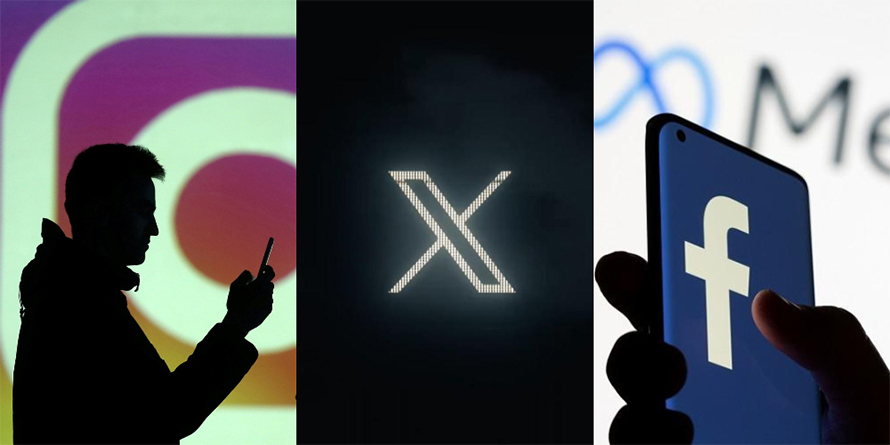
In the 21st century, teachers in Nepal, as well as across the globe, need to be highly skilled in technology and culturally competent facilitators of personalised learning and mentors to students. In the coming decades, teachers will need to become even more proficient in using technology to create engaging and effective learning experiences. Finally, the role of teachers is likely to change significantly in Nepal also as education pedagogy undergoes a transformation in the 22nd century.
The UNESCO report identifies several trends that will shape the role of teachers in the future in the 22nd century, including the use of technology in the classroom, the emphasis on cultural competence in teacher education programmes, and the shift from being the primary source of knowledge to being a facilitator of learning. Teachers will need to emphasise the development of critical thinking, problem-solving, and collaborative skills in students, rather than just imparting knowledge.
Nowadays, education is undergoing a transformation and teachers will need to become more proficient in using technology to create engaging and effective learning experiences. It is high time the Nepali education sector prepared itself for embracing the changes focusing on the teachers as everyone knows they are the most important changemakers in the sector.
The evolving role of teachers
The evolving role of teachers in the 21st and 22nd centuries would be focused on technology, personalised learning, cultural competence, critical thinking, and problem-solving skills. In Nepal, several initiatives are aimed at promoting personalised and self-directed learning, and the author emphasises the importance of ensuring that all students have access to quality education that prepares them for the challenges of the future.

The teacher of the 22nd century will be a dynamic and multi-faceted professional committed to lifelong learning. They should be skilled in using technology and other tools to support student learning while providing support and guidance to students.
Looking at the trend of teaching-learning pedagogy, a shift has been noticed in the roles of teachers. There is now a greater emphasis on digital literacy, collaboration, and critical thinking, especially when it comes to incorporating cross-cultural perspectives.
This trend is also observed at the school level. With the rise of personalised and self-directed learning, teachers will need to shift from being the sole source of knowledge to being facilitators and guides.
In Nepal, the Ministry of Education, Science and Technology has launched a program called One Laptop Per Child to provide digital devices to students for remote learning during the pandemic. Similarly, teacher training centres are transforming into virtual modes.
The Teach for Nepal programme focuses on developing critical thinking and problem-solving skills in students through project-based learning and other innovative teaching pedagogy. These initiatives are expected to prepare the sector for the 22nd century.
In the 22nd century and beyond, the role of a teacher is likely to evolve and change significantly as education itself undergoes a transformation. Teachers may become facilitators of learning, learning designers, curators of learning resources, mentors and coaches, collaborators, and networkers. The emphasis will be on providing personalised learning experiences, building emotional intelligence, and encouraging collaboration and networking among students.
The teacher of the 22nd century and beyond will be a dynamic, multi-faceted professional who is committed to lifelong learning and who is skilled in using technology and other tools to support student learning. They will have a deep understanding of different cultures, languages, and perspectives.
They will also serve as models of lifelong learning and personal growth while providing support and guidance to students as they navigate the complex and rapidly changing world of the 21st century.
The changing pedagogy

The future of knowledge in the 22nd century is likely to be shaped by a complex interplay of technological, social, and economic factors. The democratisation and decentralisation of knowledge provide exciting opportunities for individual empowerment and innovation.
However, these developments also present challenges related to the reliability and quality of information. Therefore, critical thinking and digital literacy skills are essential to effectively evaluate and utilise the sources of knowledge available in this changing landscape.
The pedagogy of the 22nd century will be influenced by advances in technology, neuroscience, and cultural changes. Potential developments in education include personalised learning, virtual and augmented reality, collaborative learning, interdisciplinary learning and social-emotional learning. These approaches to education aim to create a student-centred, technology-enhanced and interdisciplinary approach that prepares learners for the challenges of the future.
Moreover, personalised learning is gaining traction in Nepal, with an increasing focus on student-centred approaches that promote self-directed learning pedagogy. Teachers need to be able to facilitate this shift, supporting students in identifying their strengths and weaknesses and designing their own learning paths.
At the same time, critical thinking and problem-solving skills are becoming increasingly important in Nepal as it approaches the 22nd century as students are faced with complex challenges in areas such as sustainability, climate change, and social justice.
Teachers need to develop these skills among students, enabling them to analyse and solve real-world problems in a collaborative and creative way. Teachers in the 22nd century and beyond will need to possess a wide range of skills to prepare students for the rapidly changing landscape of the future and transform the pedagogy of the classroom and beyond.
Addressing key challenges

However, the use of technology in education also presents challenges. For example, the quality and reliability of online information can be a concern, especially in areas where digital literacy skills are lacking. Additionally, access to technology can be limited in some parts of Nepal, creating a digital divide that may prevent some students from fully benefitting from these advancements.
While technology and cultural competence are essential, the heart of teaching remains in the teacher-student relationship and the growth and development of each individual student. Therefore, it is crucial to ensure that all students have access to quality education that prepares them for the challenges of the future.
In Nepal, there are still challenges in ensuring equal access to technology and resources, especially in rural areas. Additionally, there is a need to train teachers to effectively use technology and to support students in developing critical thinking and problem-solving skills required for the 22nd century.
The integration of technology in the classroom will transform the way teachers teach and students learn, and cultural competence will be critical to working in diverse and globalised classrooms.
As education undergoes a transformation in the 22nd century, the role of teachers will continue to be crucial in shaping the future of our world, and it is essential to ensure that teachers are equipped with the skills and knowledge they need to succeed in this rapidly changing landscape.























